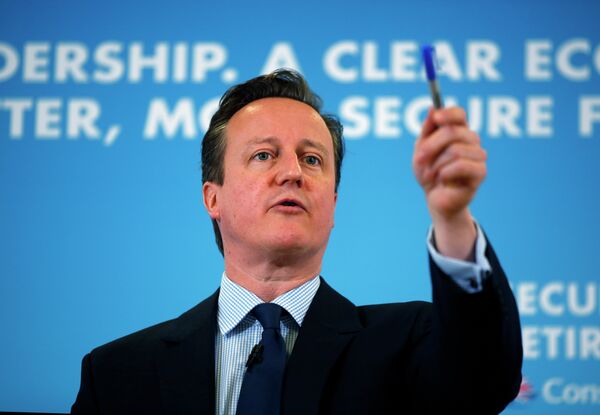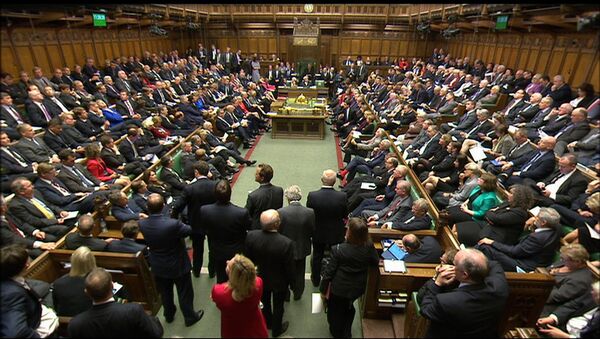There are currently 113 passholders in the House of Commons who declare outside interests to other bodies, while another 206 in the House of Lords have similar links, according to analysis of parliamentary records conducted by the Guardian.
Among those passholders are lobbyists, as well as people with links to banks, gambling firms and low tax campaigners.

Although there are more than 300 staff members with outside interests, no more than 11 will likely be required to sign the lobby register when it is introduced at the end of next month – and only if they meet a minister or a senior civil servant in the course of their activities, the Guardian reported.
The register was established as a part of Prime Minister Cameron’s 2010 vow to limit outside interests such as lobbying, which he described as “the next big scandal waiting to happen.”
It aims to target up to 75 “third party lobbyists” – public affairs companies employed by clients. But data shows that there are dozens of other bodies including think tanks, PR companies, campaign groups and charities with access to a parliamentary pass, the Guardian reported.
Tamasin Cave, a director of Spinwatch, which campaigns on lobbying transparency, said the figures showed that the lobbying bill, introduced last year, and the lobbying register, which will be introduced next month, should be scrapped.
“If they fail to cover a majority of lobbyists who are allowed to wander into parliament at will, what on earth is the point?” Cave told the Guardian.
“These figures show that the government has, either deliberately or through incompetence, blown a real chance to reform lobbying in parliament which allows vested interests to gain top-level access to the levers of power. The lobbying registrar is producing a register which is utterly meaningless.”



